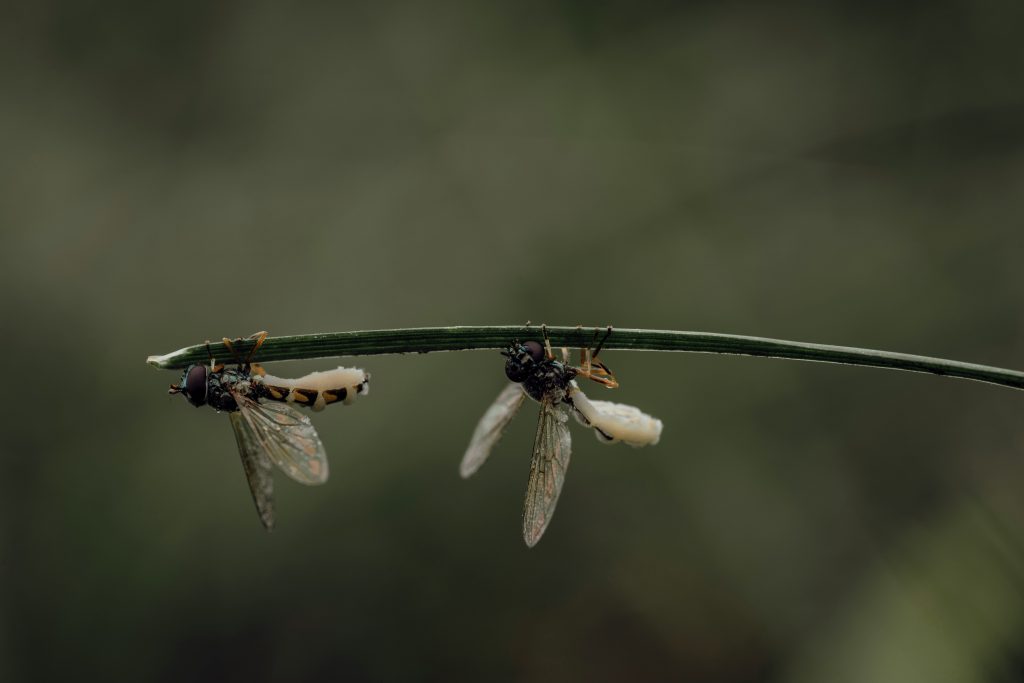Benin agricultural project uses fly larvae to produce organic fertilizer
3 min read
In Benin, farmers are turning to black soldier fly larvae to transform waste into fertilizer and restore Africa’s farmlands. Photo: Unsplash
Harnessing Insects for Sustainable Farming in Benin
Across Africa, food production faces growing threats from deforestation, soil degradation, and climate change. Farmers are increasingly looking for innovative solutions to secure their harvests and protect livelihoods. In Southern Benin, one groundbreaking agricultural project is turning to insects specifically the black soldier fly to create organic fertilizer and strengthen food security across the region.
The Growing Challenge of Land Degradation
Much of Africa’s farmland has been severely damaged by unsustainable farming practices, deforestation, and changing weather patterns. Experts say that nearly two-thirds of the continent’s land is degraded, while desertification threatens almost half of it. For smallholder farmers, who produce most of Africa’s food, this environmental decline makes growing crops even more difficult. Without fertile soil, agricultural productivity continues to shrink, leaving millions vulnerable to hunger and poverty.
A Bold Solution from Southern Benin
In response, agronomist Noël Obognon has pioneered an unusual yet highly effective approach: using the larvae of the black soldier fly to produce organic fertilizer. His project is proving that insects could play a vital role in restoring Africa’s soil health and supporting farmers who rely on small plots of land. By turning waste into fertile compost, the initiative reduces environmental strain while providing farmers with a sustainable, affordable resource.
Speeding Up Nature’s Work
Traditionally, natural decomposition processes can take up to six months to generate usable compost. However, Obognon’s method accelerates this timeline dramatically. When introduced to organic matter, the larvae feed voraciously, breaking down waste in just 12 days. “These small larvae, wanting to feed and eat, will start decomposing the material—they will eat everything,” Obognon explains. This rapid process allows farmers to produce ten times more natural compost compared to conventional methods.
Expanding Access to Organic Fertilizer
Thanks to this innovation, Obognon’s company now supplies organic fertilizer to over 2,500 clients. These include farmers not only in Benin but also across neighboring countries such as Chad, Ivory Coast, Burkina Faso, and Niger. By making eco-friendly fertilizer more widely available, the project helps improve soil fertility, reduce reliance on expensive chemical inputs, and promote healthier agricultural systems.
Backing from International Organizations

The project’s success has attracted support from major international partners. The United Nations’ International Fund for Agricultural Development (IFAD) has provided resources to expand the initiative and strengthen its impact. According to Mahoussi Simone Assocle, IFAD’s biodiversity and climate specialist, low organic matter in soils and widespread erosion remain major obstacles for farmers. She emphasizes that projects like this are crucial in combating poverty, boosting productivity, and building resilience to climate change.
Climate Change and Agricultural Uncertainty
Climate change continues to disrupt farming seasons across Africa. Prolonged droughts and unpredictable rainfall patterns make it difficult for farmers to plan and harvest effectively. With soils already depleted, these extreme conditions only worsen the crisis. Solutions that regenerate soil health, like the black soldier fly project, offer a pathway toward long-term sustainability and resilience for vulnerable farming communities.
A Continental Call for Food Security
The urgency of these challenges is reflected in regional discussions. This week, the Africa Food Systems Forum Summit is being held in Dakar, Senegal, with food security, agricultural transformation, and climate resilience at the center of debates. Leaders, researchers, and development partners are calling for bold, scalable strategies to ensure Africa’s growing population has enough to eat in the decades ahead.
Omega Tv UK celebrates ONE YEAR ANNIVERSARY, we wish to thank all our viewers for helping us reach this milestone.
Happy 1st anniversary to Omega TV UK!.
Toward a Greener Agricultural Future
While insects may not seem like obvious allies in the fight against hunger, the black soldier fly is proving to be a small but powerful tool for big change. By transforming waste into fertile soil, projects like Obognon’s demonstrate how local innovation can tackle global challenges. For farmers in Benin and beyond, insect-based fertilizers may be the key to restoring land, boosting harvests, and securing Africa’s agricultural future






